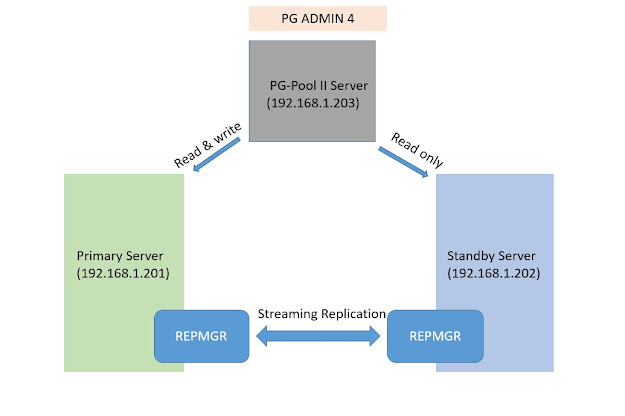PL/PGSQL Block Structures
PL/pgSQL block structure example:
The
following example illustrates a very simple block. It is called
an anonymous block.
Input:
DO
$$
<<first_block>>
DECLARE
a
integer := 0;
BEGIN
a
:= a + 1;
RAISE
NOTICE 'The current value of a is %', a;
END
first_block $$;
Output:
NOTICE: The current value of counter is 1
PL/pgSQL Sub block:
PL/pgSQL allows you to place a block inside the body of another block. This block nested inside another block is called subblock. The block that contains the subblock is referred to as an outer block.
Syntax:
The
sub blocks are used for grouping statements so that a large block can be
divided into smaller and more logical sub blocks. The variables
in the subblock can have the names as the ones in the outer block, even though
it is not a good practice.
When
you declare a variable within subblock with the same name as the one in the
outer block, the variable in the outer block is hidden in the subblock. In
case you want to access a variable in the outer block, you use block label to
qualify its name as shown in the following example:
Input:
DO
$$
<<outer_block>>
DECLARE
a
integer := 0;
BEGIN
a
:= a + 1;
RAISE
NOTICE 'The current value of a is %', a;
DECLARE
a
integer := 0;
BEGIN
a
:= a + 10;
RAISE
NOTICE 'The current value of a in the subblock is %', a;
RAISE
NOTICE 'The current value of a in the outer block is %', outer_block.a;
END;
RAISE
NOTICE 'The current value of a in the outer block is %', a;
END
outer_block $$;
Output:
NOTICE: The
current value of a is 1
NOTICE: The
current value of a in the subblock is 10
NOTICE: The
current value of a in the outer block is 1
NOTICE: The
current value of a in the outer block is 1



Comments
Post a Comment